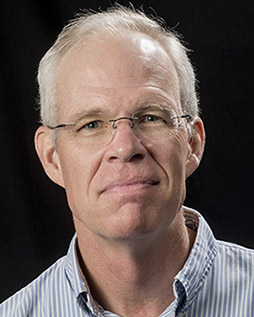
Rich Ling is Professor at Nanyang Technological University, Singapore. Ling studies the social consequences of mobile communication including how it facilitates microcoordination, how it has been adopted and used by teens in Norway and the US, its role in the diffusion of news (and fake news), and how it is used by small-scale entrepreneurs in places such as Cote d’Ivoire and Myanmar. He has also examined how it illuminates more fundamental social forces such as strong-tie bonds and triadic interaction and how mobile communication is increasingly being structured into the social fabric.
DJRG Fellow, December 2019
Ling has written/edited 11 books and over 100 peer-reviewed papers and book chapters. His single-author books include The mobile connection (Morgan Kaufmann, 2004), New Tech, New Ties (MIT, 2008) and Taken for grantedness (MIT, 2012) a book that received a complimentary review in the journal Science. He is Editor-in-Chief of the Journal of Computer-Mediated Communication, a founding co-editor of Mobile Media and Communication (Sage), a founding co-editor of the Oxford University Press Series Studies in Mobile Communication. He was recently named a fellow of the International Communication Association (ICA). Also, he is the chair of the ICA Mobile Communication Interest Group.
Title and abstract
Journalistic deskilling and a call for a new journalism
I have worked in the area of mobile communication and journalism for the last years. I have a long history of studying the social consequences of mobile communication stretching back to the mid 1990’s. In addition, for the last few years I have led a project on the future of journalism as it faces the transition to mobile platforms. This was the “Personal Portable Information Devices (PPIDs) project, which was funded by the Singaporean Ministry of Education that had a budget of approximately 1.68 million NOK. One of the main findings of this project is that the traditional distribution chains associated with legacy journalism are under siege. Rather than subscribing to a news source, many people are simply getting their news via social media. This means that the gatekeeper role of legacy news is being replaced. It means that our sharing of news stories with our social media sphere has become our access point to news. It also means that the role of the journalist, and the professional criteria upon which this rests, is being eroded.
In short the news industry is facing an unprecedented transition. There are technical transitions (digitalization and AI), the notion of the profession is being questioned, the legitimacy of the institution is in question (viz. President Trump’s continued attacks), etc. Given this, there is the need to carefully think about the broader role of journalism in society. There is the need to think beyond the definition of the profession. In this work I propose to examine the broader social function of news and how to pursue that in the new technical environment. While there is a stark need for a Jeffersonian “enlightened electorate,” robust civic information, and a population that engages in this information, there is also the distinct possibility that we are moving in the direction of a “bread and circus” development. I am interested in taking some time to think about these issues and to consider what a new journalism would include.
Selected publications
- Aricat, Rajiv G. and Ling, Rich. (2018) Mobile Phones and Migrant Acculturation: A Study among Low-Skilled Workers in Singapore. New York: Lexington Books
- Herro, S. Arafeh, R. Ling & C. Holden (Eds.) (2018), Mobile learning: Perspectives on practice and policy. Charlotte, NC: Information Age Publishing.
- Goggin, G., Hjorth, L., & Ling, R. (Eds.). (2016). Mobile Technologies. (4 volumes) Routledge: London.
- Ling, R. (2012). Taken for grantedness. Cambridge, MA: MIT Press.
- Ling, R., & Horst. H. (Eds.). (2011). Mobile communication and the developing world [Special Issue]. New Media & Society, 13(3).
- Ling, R., & Campbell, S. (Eds.). 2011. Mobile communication: Bringing us together or tearing us apart?. New Brunswick, NJ: Transaction.
- Ling, R., & Donner, J. (2009). Mobile phones and mobile communication. Cambridge: Polity.
- Ling, R. (2008). New tech, new ties: How mobile communication is reshaping social cohesion. Cambridge, MA: MIT Press.
- Ling, R., & Campbell, S. (Eds.). (2008). Mobile communications research annual: Vol. I. The reconstruction of space and time through mobile communication practices. New Brunswick, NJ: Transaction.
- Ling. R., & Pedersen, P. (Eds.). (2005). Mobile communications: Re-negotiation of the social sphere. London: Springer-Verlag.
- Ling. R. (2004). The mobile connection: The cell phone’s impact on society. San Francisco: Morgan Kaufmann.
- Ling. R. (Ed.). (2002). Mobile communication and the reformulation of the social order [Special Issue]. Personal & Ubiquitous Computing, 5(2).
- Ling, R., & Wilhite, H. (Eds.). (1993). The energy efficiency challenge for Europe: Oslo, Norway: European Council for an Energy-Efficient Economy.